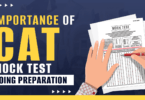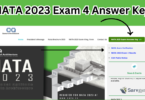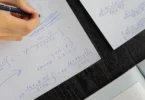Everyone makes mistakes. With all the rules that come with scholarly writing, it’s common for students to make mistakes. Below are ten of the most common scholarly writing mistakes, as well as for instructions on how to avoid them in the future. Students would do well to read these tips carefully and keep them in mind. Students are also provided with helpful links that can be used to find more examples of how to avoid these typical scholarly writing mistakes.
Improper Citations
The right citations can make or break a paper. One of the costliest mistakes a student can make in a scholarly essay. If a student forgets to cite a source entirely, they could be accused of plagiarism. This could cause a student to fail their assignment. Simply making sure that all the sources are cited within the paper and in the works cited page/bibliography can help to prevent this.
Another way students could get in trouble with improper citations is simply using citation methods incorrectly. In college, the most common citation styles are APA, MLA, and Chicago. College students should eventually become fluent in all these citation styles. Until then, students can use this handy link to learn how to cite their sources correctly, both in-text and in the works cited page/bibliography.
Incorrect Formatting
Another thing that can dock students’ points is using incorrect formatting. Using the wrong formatting won’t fail a student, but it won’t help their grade either. The best way to format a paper correctly is to check the paper’s rubric to see what style guide is needed. Style guides include things like font type and size, line spacing, headings, and citations. Like with citations, APA, MLA, and Chicago are the most common style guides.
Irrelevant Information
Meeting word count is important but staying on topic is more important. Professors need to read dozens, if not hundreds, of papers. The last thing they want to read is something that has nothing to do with the paper’s topic. So, stick to what needs to be in the paper. Don’t rely on useless information to pad the paper. If a student needs more information, they should instead find relevant information, quotes, or data.
No Connections Between Paragraphs
When students get distracted, they may write paragraphs that don’t connect well. Paragraphs, especially body paragraphs, should relate to each other. Transitions between paragraphs should be smooth—not choppy. Transitions should bridge the gap between paragraphs.
Overusing Quotes
Using quotes is a great way to add length to a paper, directly write something that was perfectly phrased in an article, or to simply quote someone. However, quotes should be used sparingly. When students use too many quotes, the paper is written by someone else, rather than themselves. Another tip about quotes—make sure to cite them properly. Using quotes without quotation marks and a citation can lead to plagiarism accusations.
Plagiarism
Plagiarism is possibly the biggest academic writing mistake students can make. Even if it’s done even once, it can lead to a student failing a paper. The easiest way to avoid plagiarism is to cite sources and to avoid copying and pasting information.
However, accidental plagiarism does happen. Luckily, students can check for plagiarism online for free. Of course, students should be wary of services they use to do this. A great website students can use is Turnitin.
Spelling and Grammar
Having a firm grasp on spelling and grammar rules is a skill that every college student should have. Making mistakes in spelling and grammar makes writing look amateurish at best. Students should always aim for professional writing. Students would do well to brush up on these skills. Until then, they can use grammar and spelling services. Grammarly is one great resource students can use for free.
Third Person Point of View
Unless a profession specifically states otherwise, essays and research papers should always be written in the third person. Students need to avoid using first- and second-person language, as it seems unprofessional. Avoid using these words: I, me, my, our, we, you, your, and us. Some pronouns, like they, them, and their, are okay to use in most cases.
Unprofessional References
Students surely know that not everything on the Internet is true. That’s why it’s so important for students to use reliable references. Students would do well to use books, as they are usually reliable. Students can also use their school’s library to find scholarly sources like articles and academic journals. Another great resource for students to use to find scholarly work is Google Scholar.
Weak Thesis Statement
A powerful thesis statement starts off every great paper. A weak thesis statement leads to a poor start of a paper. There are a few basic things students should keep in mind when writing a strong thesis statement. A strong thesis statement should be clear, concise, original, and straight to the point. By doing this, readers know exactly what the paper is about before they even get to the second paragraph!
There are many mistakes students can make while writing scholarly essays, and these are the top ten most common ones. Students would do well to keep these tips in mind. By using them, they can learn how to avoid these mistakes, fix them if they have already made them, and get a better grade in the process!







